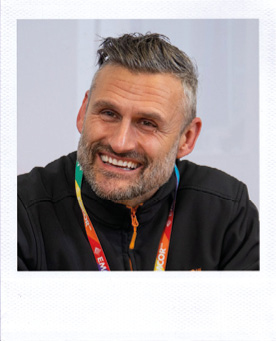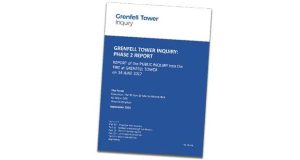 THE FM SERVICES PROVIDER’S VIEW
THE FM SERVICES PROVIDER’S VIEW
STEVE THOMSON,
ACCOUNT DIRECTOR, EMCOR UK
FM generally has a good reputation regarding physical health and safety, especially as many of the environments we work in are high risk sectors, such as manufacturing. Awareness of mental health has certainly increased in recent years, but it’s still not given the same priority. This is despite a recognition of the cost to employers and the long-lasting impact on employee welfare.
The approach to better mental health support needs to be top down and bottom up. It’s important for a company to have policies, deliver training and send out messaging that it is committed to supporting mental health. We were the first organisation globally to be certified against ISO 45003 – the first global standard providing practical guidance on managing psychological health and safety in the workplace. That sent a clear message to our employees and customers that we were taking mental wellbeing seriously.
There is no one-size-fits-all solution for supporting employee wellbeing, which is why it’s equally important for FM teams and managers to identify and deliver programmes that work for them.
In 2022, mental ill health was the second highest cause of absenteeism among my colleagues working at British Sugar. If physical injury was causing so many absences, we’d waste no time in addressing it, and I wanted to take mental illness just as seriously.
Our team at British Sugar is about 80 per cent male and more than half of them are over 50 years old – not a group that is typically comfortable talking about mental health. So, I started an initiative called ‘This is me’ to kickstart our wellbeing journey. It was a safe space where colleagues could talk about things that impacted them, whether at work or in their personal life. I knew that I would need to take the lead so shared 10 personal things to get things rolling. That encouraged others to open up and ignited some amazing conversations. It was a crucial first step in removing the taboo from talking about mental health.
I also addressed the support available in the workplace. We didn’t have any mental health first aiders – two years later we have 53. Eight of those have taken a two-day programme to deliver enhanced support, and it means we have an abundance of employees who can deliver mental health signposting and assistance. We’re also trialling a NESBOSH Wellbeing Qualification, which I have passed.
Like many FM providers, we employ lots of people from the local community and wanted to extend our support beyond our customer site. We partnered with local charity Access Community Trust (ACT) and our colleagues volunteer at Steam House Café in King’s Lynn, one of the charity’s mental health crisis cafes. ACT holds six mental health drop-in sessions every month at the café, which are open to all employees of EMCOR UK, British Sugar and any employees in British Sugar’s supply chain. These programmes have seen the number of working days lost due to mental health issues drop by 50 per cent.
We have a duty to care for our colleagues and small changes can make a big impact. I’d encourage anyone in FM looking to address mental ill health to advocate for any resources you need from senior leadership and consider ways of creating a bespoke solution for your own team.





